I have always felt like an artist when I work on a book. I see no reason why the word should always be confined to writers of fiction and poetry.
BARBARA TUCHMANThe Church [in the 14th century] gave ceremony and dignity to lives that had little of either. It was the source of beauty and art to which all had some access and which many helped to create.
More Barbara Tuchman Quotes
-





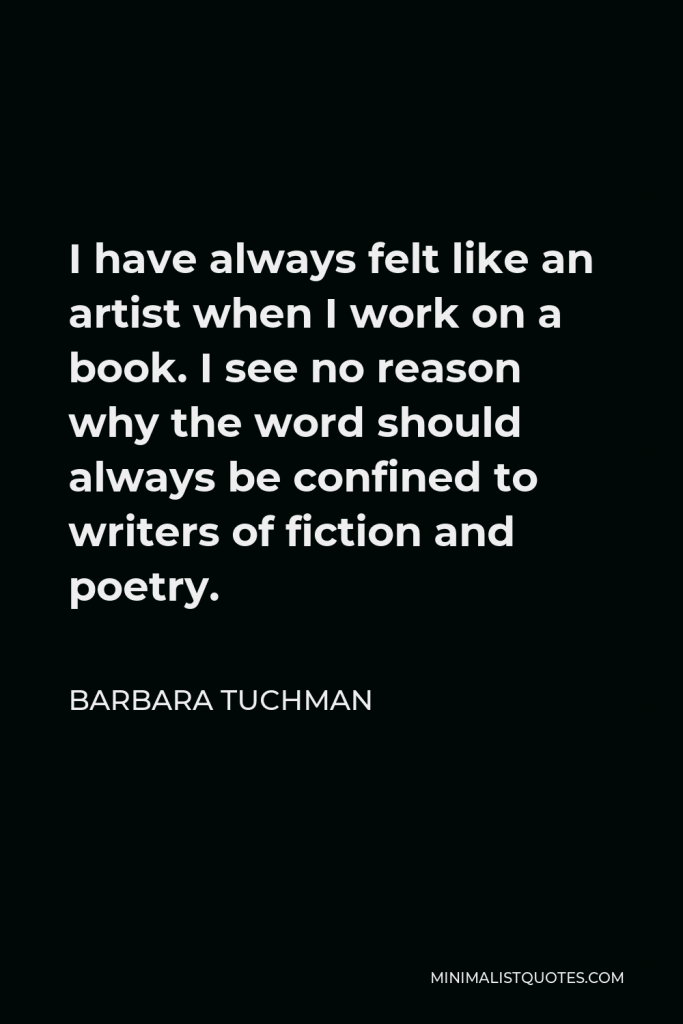

-





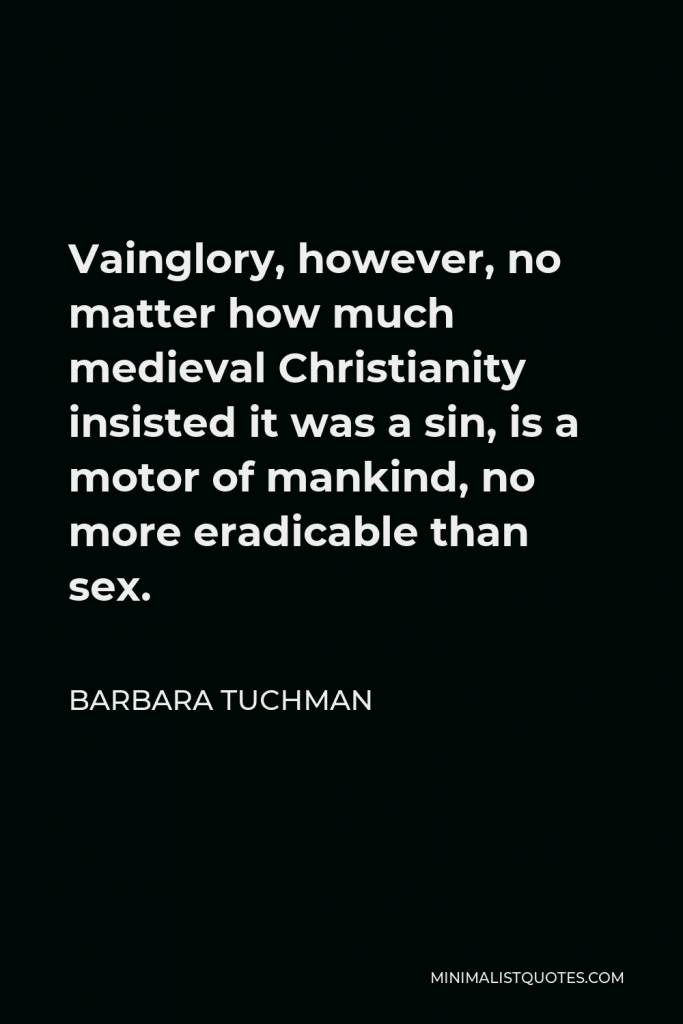

Vainglory, however, no matter how much medieval Christianity insisted it was a sin, is a motor of mankind, no more eradicable than sex.
BARBARA TUCHMAN -





![Barbara Tuchman Quote - The Church [in the 14th century] gave ceremony and dignity to lives that had little of either. It was the source of beauty and art to which all had some access and which many helped to create.](https://minimalistquotes.com/wp-content/uploads/2022/10/the-church-in-the-14th-century-gave-ceremony-and-d-683x1024.jpg)

The Church [in the 14th century] gave ceremony and dignity to lives that had little of either. It was the source of beauty and art to which all had some access and which many helped to create.
BARBARA TUCHMAN -





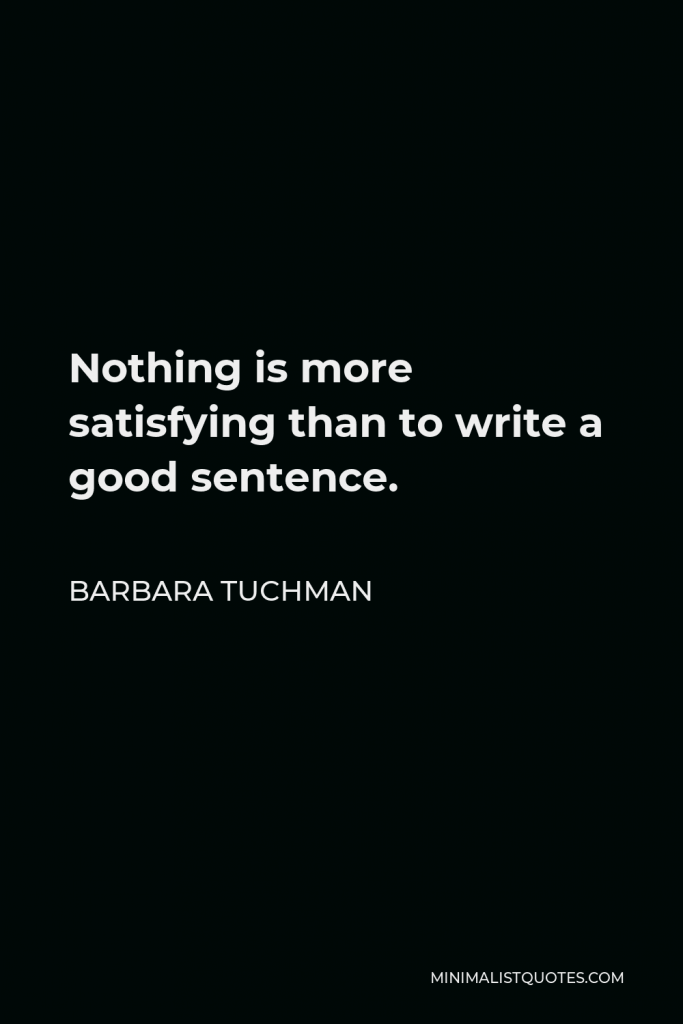

Nothing is more satisfying than to write a good sentence.
BARBARA TUCHMAN -





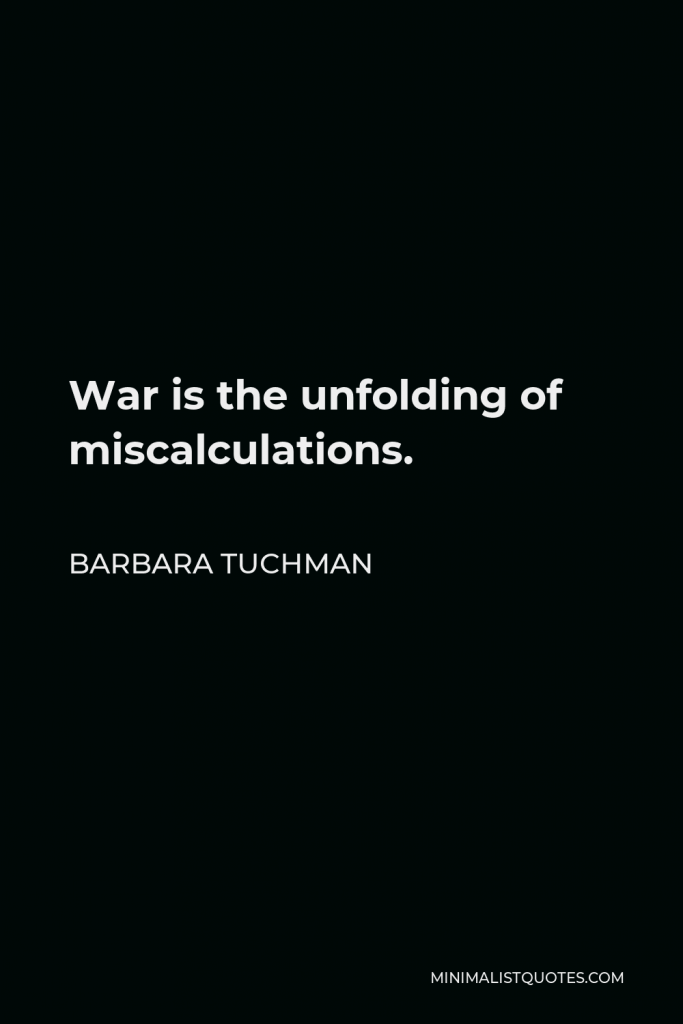

War is the unfolding of miscalculations.
BARBARA TUCHMAN -





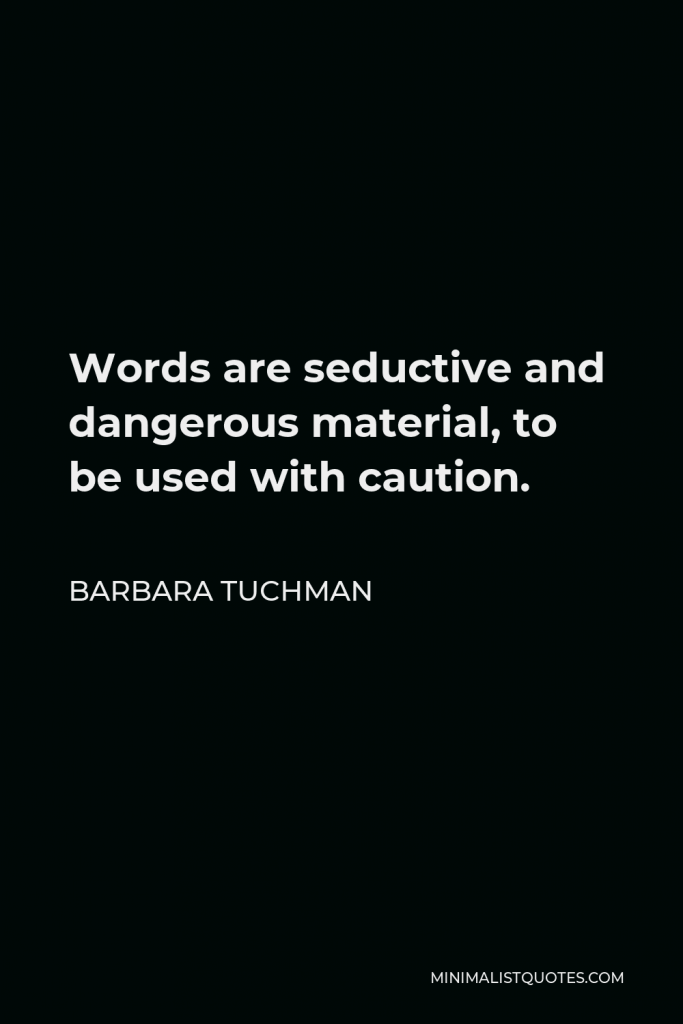

Words are seductive and dangerous material, to be used with caution.
BARBARA TUCHMAN -





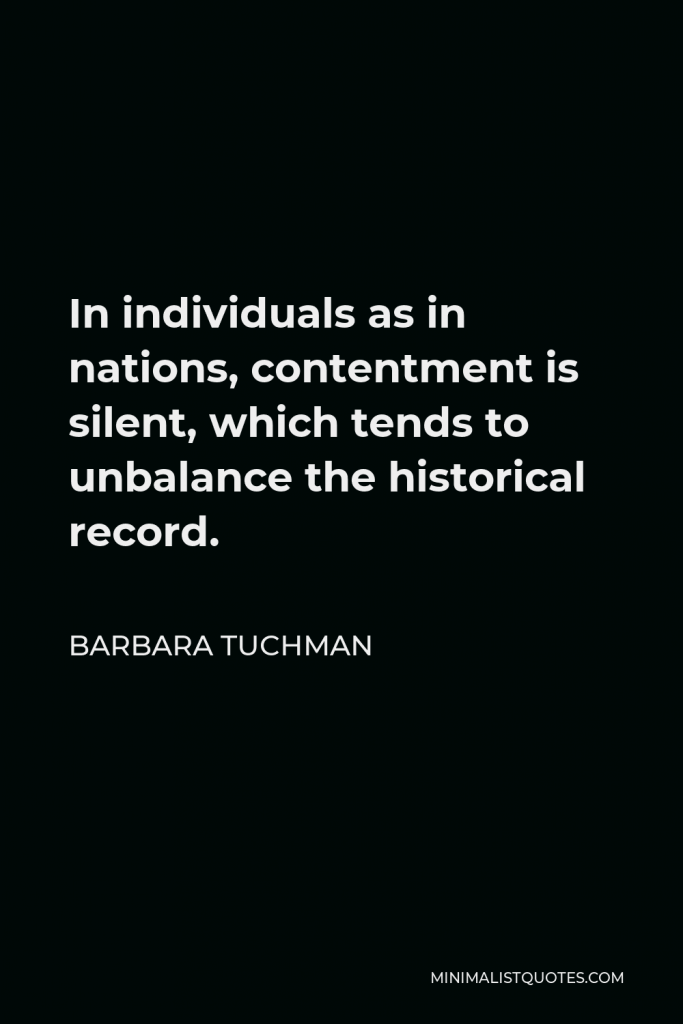

In individuals as in nations, contentment is silent, which tends to unbalance the historical record.
BARBARA TUCHMAN -





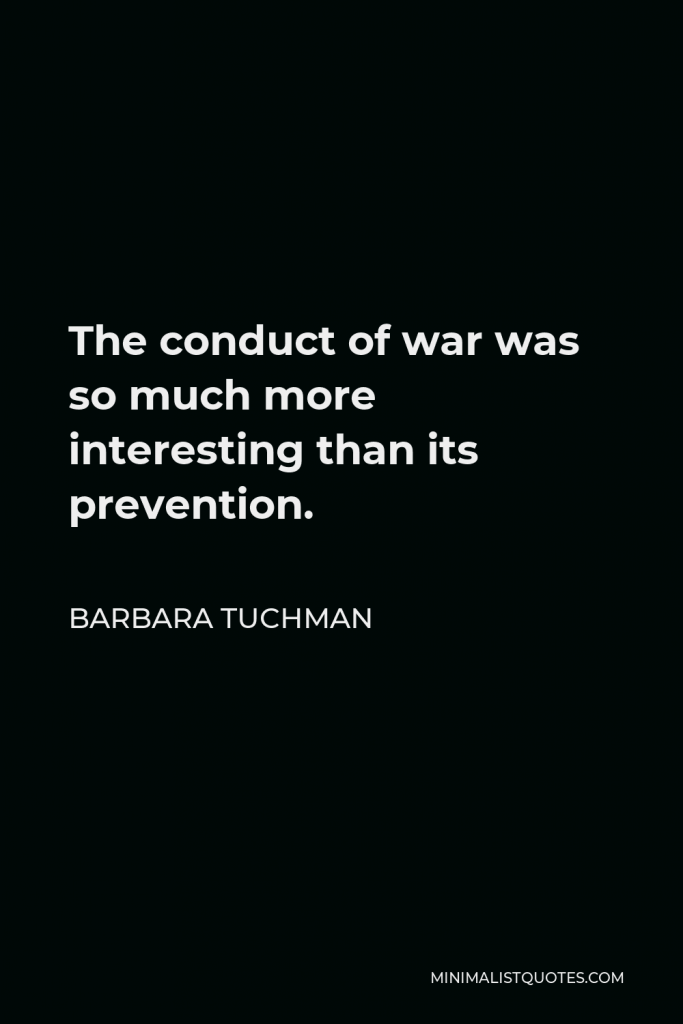

The conduct of war was so much more interesting than its prevention.
BARBARA TUCHMAN -





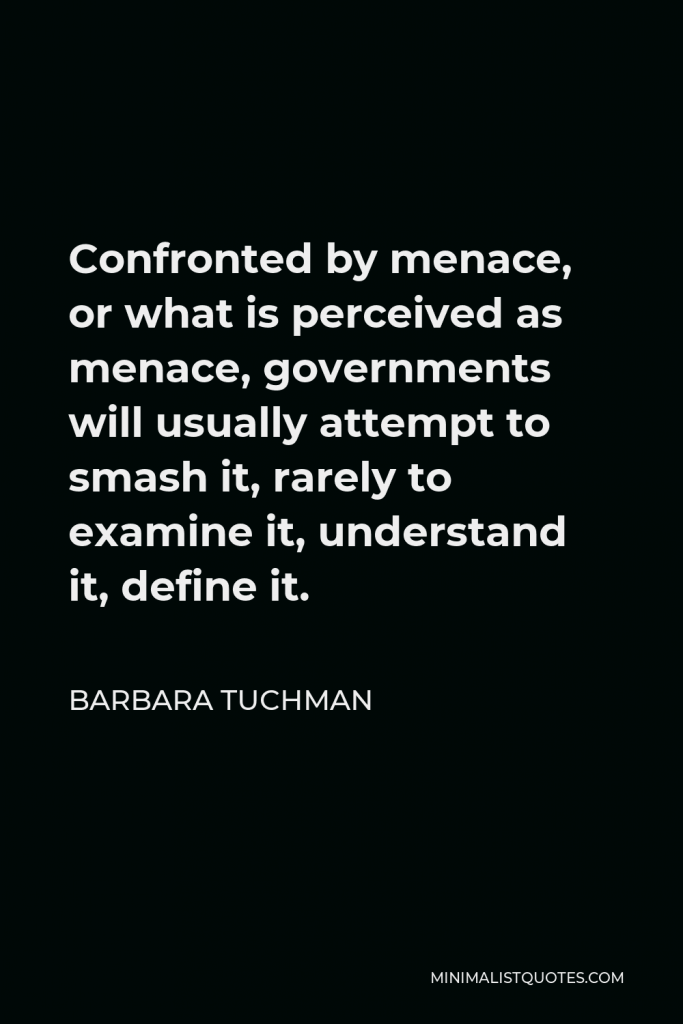

Confronted by menace, or what is perceived as menace, governments will usually attempt to smash it, rarely to examine it, understand it, define it.
BARBARA TUCHMAN -





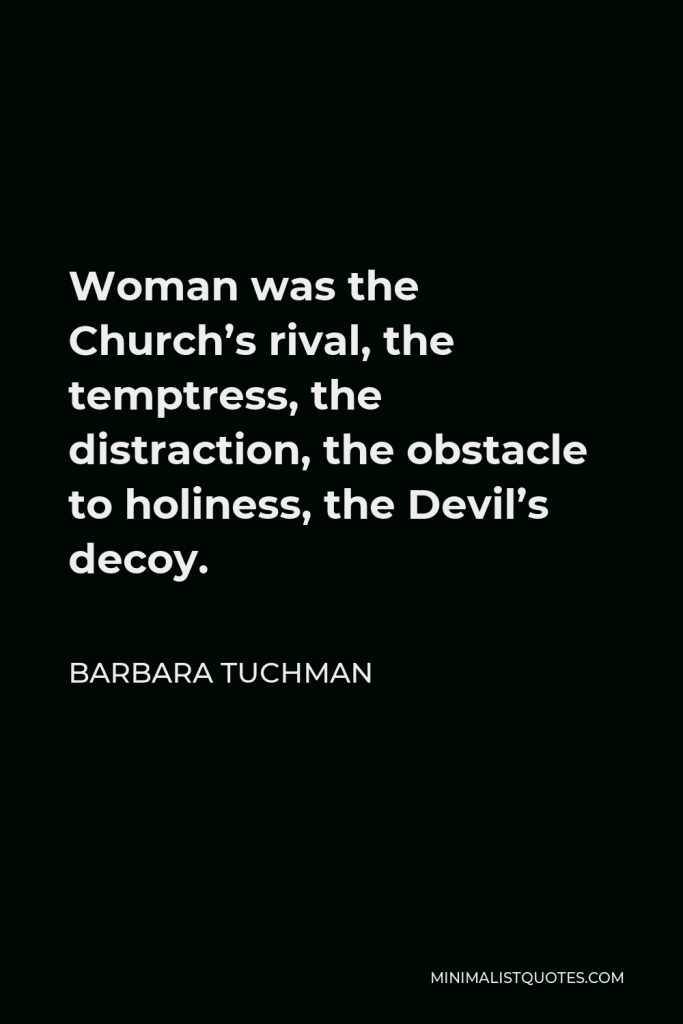

Woman was the Church’s rival, the temptress, the distraction, the obstacle to holiness, the Devil’s decoy.
BARBARA TUCHMAN -





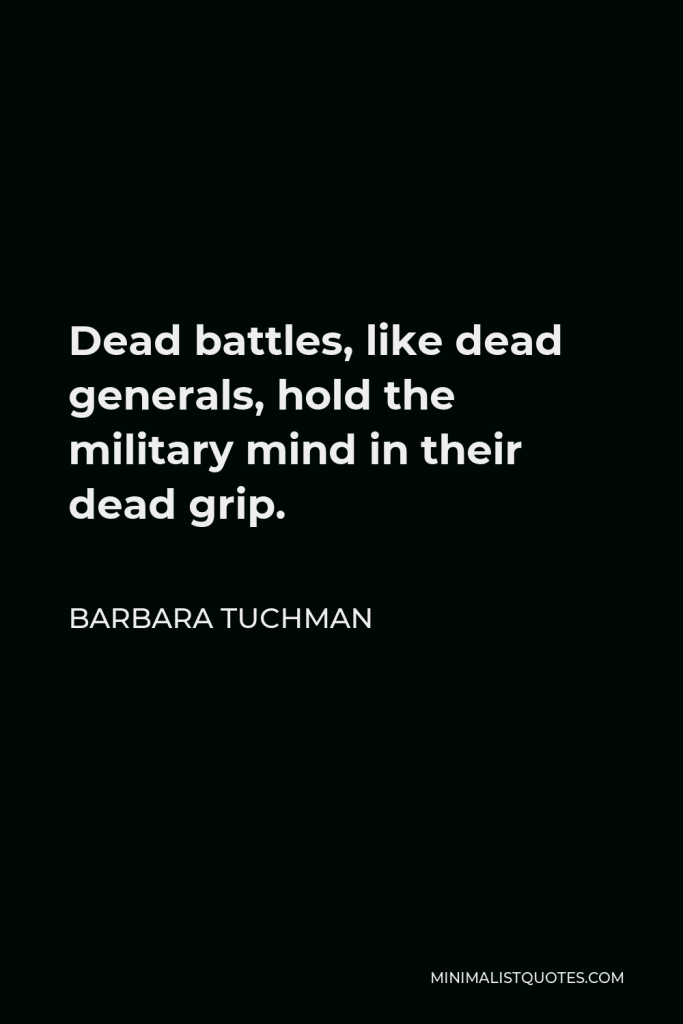

Dead battles, like dead generals, hold the military mind in their dead grip.
BARBARA TUCHMAN -







Voluntary self-directed religion was more dangerous to the Church than any number of infidels.
BARBARA TUCHMAN -





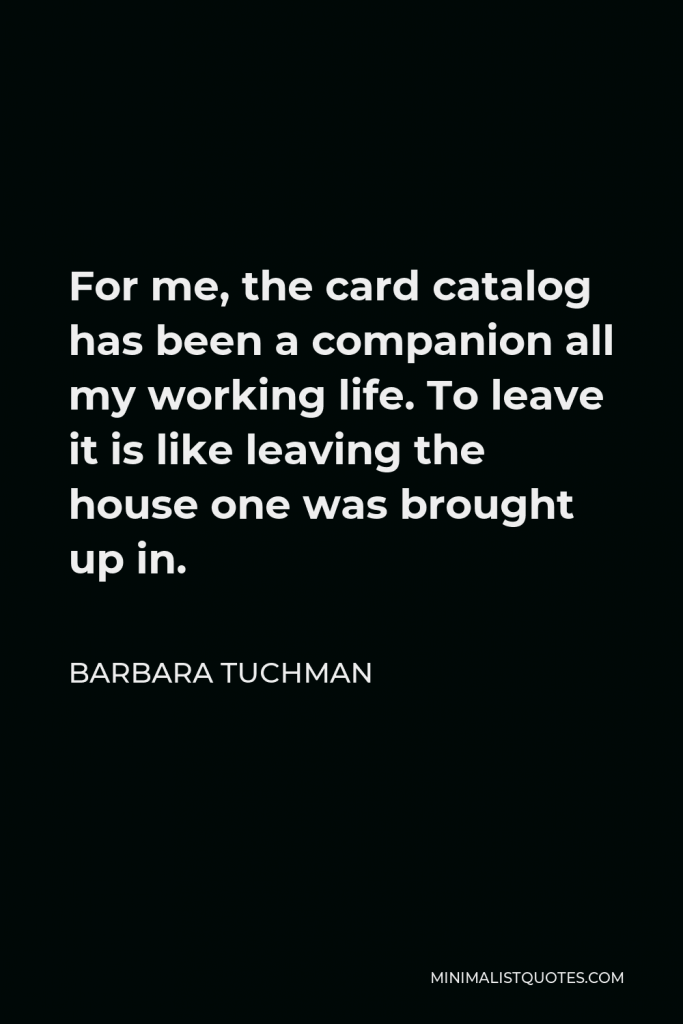

For me, the card catalog has been a companion all my working life. To leave it is like leaving the house one was brought up in.
BARBARA TUCHMAN -





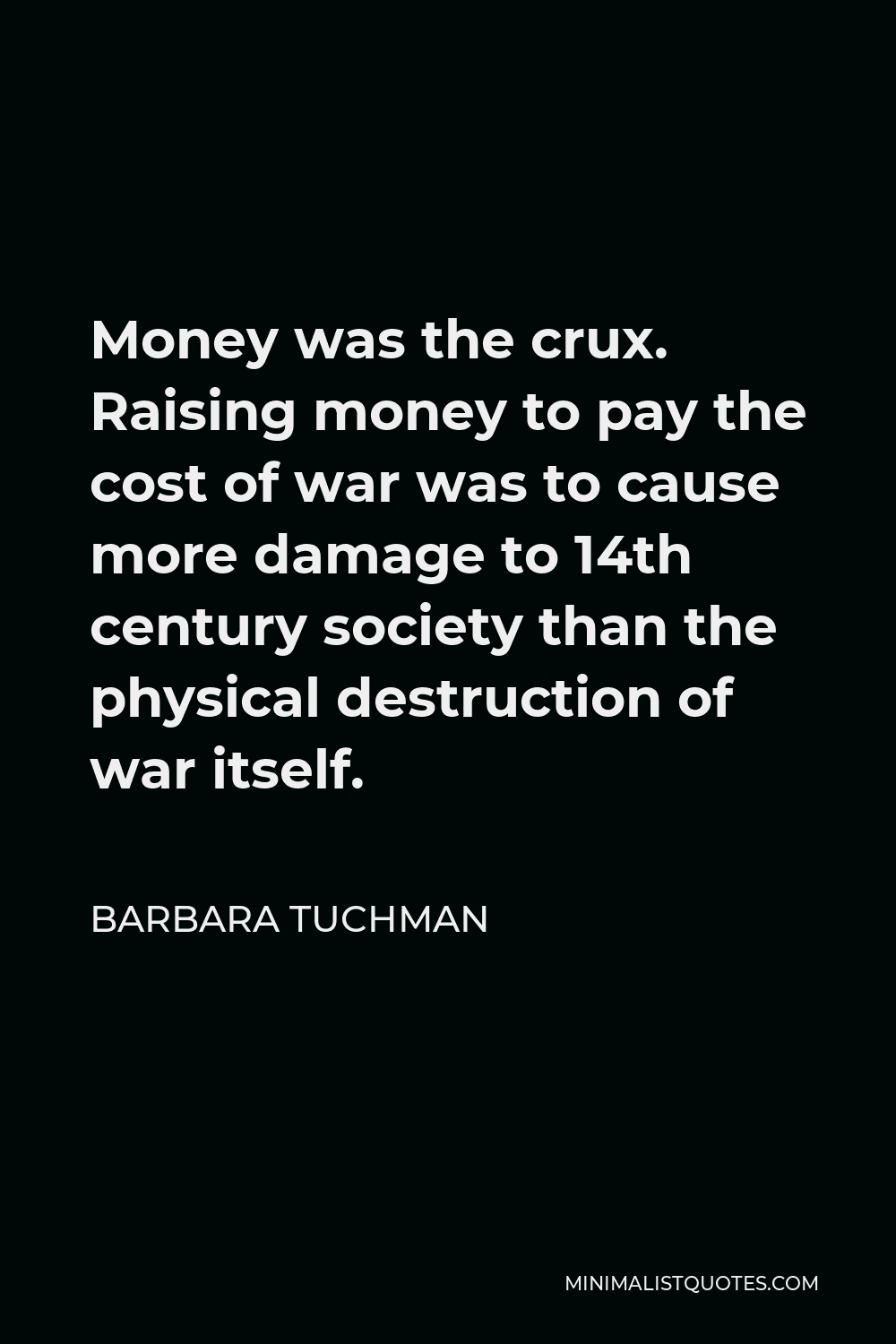
Money was the crux. Raising money to pay the cost of war was to cause more damage to 14th century society than the physical destruction of war itself.
BARBARA TUCHMAN -





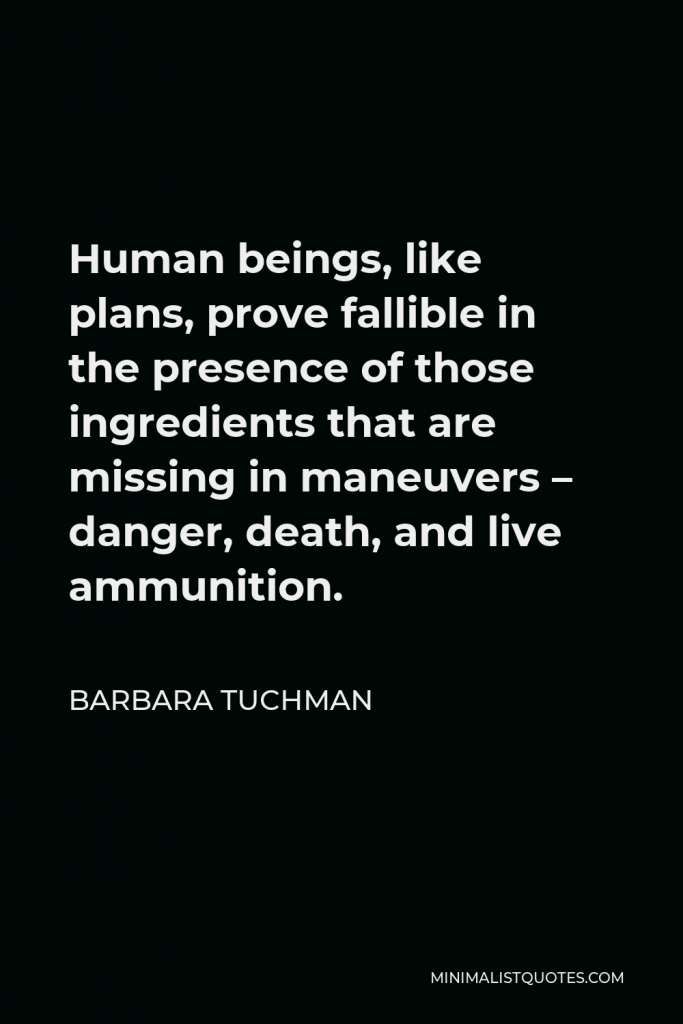

Human beings, like plans, prove fallible in the presence of those ingredients that are missing in maneuvers – danger, death, and live ammunition.
BARBARA TUCHMAN -





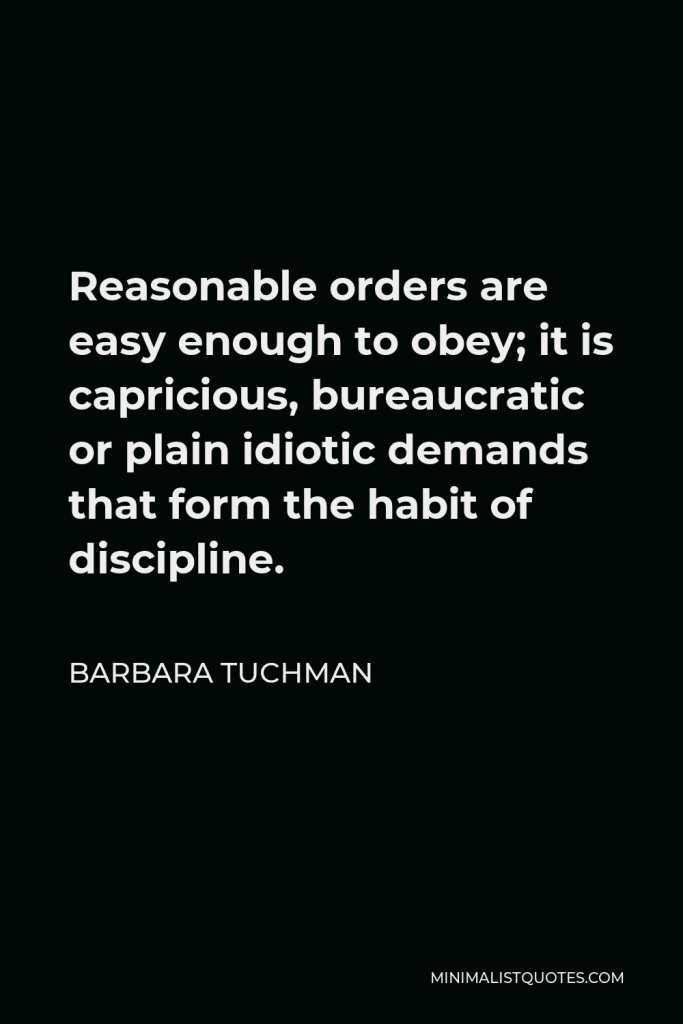

Reasonable orders are easy enough to obey; it is capricious, bureaucratic or plain idiotic demands that form the habit of discipline.
BARBARA TUCHMAN
![Barbara Tuchman Quote - The Church [in the 14th century] gave ceremony and dignity to lives that had little of either. It was the source of beauty and art to which all had some access and which many helped to create.](https://minimalistquotes.com/wp-content/uploads/2022/10/the-church-in-the-14th-century-gave-ceremony-and-d.jpg)
![Barbara Tuchman Quote - The Church [in the 14th century] gave ceremony and dignity to lives that had little of either. It was the source of beauty and art to which all had some access and which many helped to create.](https://minimalistquotes.com/images/grey-the-church-in-the-14th-century-gave-cere.jpg)
![Barbara Tuchman Quote - The Church [in the 14th century] gave ceremony and dignity to lives that had little of either. It was the source of beauty and art to which all had some access and which many helped to create.](https://minimalistquotes.com/images/blue-the-church-in-the-14th-century-gave-cere.jpg)
![Barbara Tuchman Quote - The Church [in the 14th century] gave ceremony and dignity to lives that had little of either. It was the source of beauty and art to which all had some access and which many helped to create.](https://minimalistquotes.com/images/red-the-church-in-the-14th-century-gave-cere.jpg)
![Barbara Tuchman Quote - The Church [in the 14th century] gave ceremony and dignity to lives that had little of either. It was the source of beauty and art to which all had some access and which many helped to create.](https://minimalistquotes.com/images/brown-the-church-in-the-14th-century-gave-cere.jpg)
![Barbara Tuchman Quote - The Church [in the 14th century] gave ceremony and dignity to lives that had little of either. It was the source of beauty and art to which all had some access and which many helped to create.](https://minimalistquotes.com/images/white-the-church-in-the-14th-century-gave-cere.jpg)

